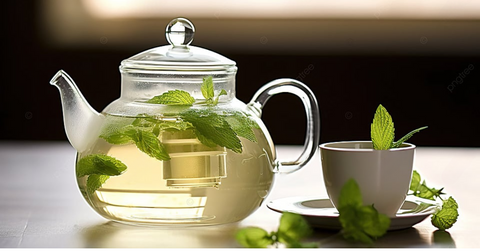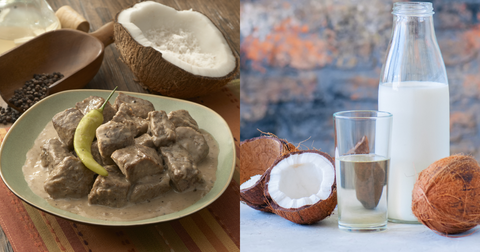When it comes to choosing foods for a healthy grocery list, there are often debates about which options are superior. One such debate revolves around white corn and yellow corn.
Is one truly better for your health than the other?
In this blog, we'll explore the nutritional differences between white and yellow corn, their potential health benefits, and how personal preferences and cultural considerations can influence your choice.
Nutritional Profiles of White Corn and Yellow Corn
First and foremost, it's important to understand that both white and yellow corn offer a rich array of nutrients and health benefits.
They are both excellent sources of carbohydrates, fiber, vitamins, and minerals.
However, there are some key differences between the two.
White corn, as the name suggests, is typically paler in color. This is due to the presence of anthocyanins, which are antioxidants that can have anti-inflammatory and cardiovascular benefits.
On the other hand, yellow corn is known for its vibrant hue, which is attributed to carotenoids, especially lutein and zeaxanthin.
These carotenoids are essential for eye health and function as antioxidants.
Health Benefits of Yellow Corn
Yellow corn's standout feature is its high carotenoid content, specifically lutein and zeaxanthin.
These compounds are crucial for eye health and can help reduce the risk of age-related macular degeneration and cataracts.
They function as antioxidants, protecting the eyes from harmful free radicals.
Beyond eye health, the carotenoids in yellow corn may also benefit your skin and immune system. They can help safeguard your skin from UV damage and boost your body's natural defenses against infections and illnesses.

Health Benefits of White Corn
White corn, with its anthocyanin content, offers its own set of health advantages.
Anthocyanins are potent antioxidants that can reduce inflammation and help protect your cardiovascular system.
By reducing oxidative stress and inflammation in your arteries, they may contribute to lower blood pressure and a decreased risk of heart disease.
Research has also suggested that anthocyanins may play a role in reducing the risk of chronic diseases, such as cancer and diabetes.
While more research is needed to confirm these potential benefits, it's clear that white corn can be a valuable addition to your diet.

Taste and Texture Differences of White Corn and Yellow Corn
Taste is a crucial factor in food choices, and it's where white and yellow corn truly differentiate themselves.
Yellow corn is often sweeter and more flavorful than white corn, which many people find appealing.
The natural sweetness of yellow corn can make it a favorite for snacking or grilling during summer barbecues. Its rich, full flavor lends itself well to a wide range of dishes.
White corn, on the other hand, is typically less sweet and has a more delicate, subtle flavor.
Some people prefer this milder taste, especially in dishes where the corn is used as an ingredient rather than the main attraction.
Its flavor doesn't overpower other ingredients, making it versatile for various culinary applications.
Dietary Preferences and Cultural Considerations
Dietary preferences often come into play when deciding between white and yellow corn.
Regional variations can heavily influence corn choices.
For instance, in some areas, yellow corn may be the traditional and preferred choice, while in other regions, white corn is more commonly consumed.
Cultural traditions and recipes can also shape corn preferences.
Traditional dishes and cooking methods often rely on a specific type of corn, which can lead to strong regional preferences.
Making the Right Choice for Your Health
The choice between white and yellow corn ultimately comes down to your personal preferences and nutritional needs.
Both varieties offer valuable nutrients and potential health benefits. The best corn for your health is the one you enjoy and are more likely to include in your diet.
Emphasizing variety in your diet is essential. You can benefit from the different nutrients in both white and yellow corn by incorporating them into your meals.
Enjoy the sweet, robust flavor of yellow corn in your summer salads or on the grill, and savor the delicate taste of white corn in your favorite soups and stews.
Conclusion
In the great white corn vs. yellow corn debate, there is no clear winner in terms of health benefits. Both varieties offer unique nutritional advantages and can be part of a balanced and healthy diet.
Your choice should be guided by your taste preferences, regional influences, and cultural traditions.
Ultimately, the best corn for your health is the one that you relish and are excited to include in your meals. Whether it's the vibrant yellow corn or the understated white corn, what matters most is that you embrace a diverse and well-rounded diet.
So, don't be afraid to explore both white and yellow corn varieties and discover new ways to enjoy the bounty of this versatile and nutritious grain.
Order Yellow Corn Now
Visit our website to discover our range of delicious corn products, from non-GMO yellow and white corn to mouthwatering corn-based recipes.
Embrace a healthy and diverse diet with Ecosprout today.





